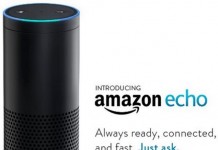 As keen as I am on library e-books, I’m as much a booster of the buyable variety. I want people to be able to own e-books for real, ideally without DRM.
As keen as I am on library e-books, I’m as much a booster of the buyable variety. I want people to be able to own e-books for real, ideally without DRM.
More and more of our books, music, and even personal files, however, are in The Cloud beyond our direct control. Not on our desktops, smartphones or tablets, but on remote severs, maybe thousands of miles from us, perhaps even continents and oceans away. What’s more, this issue has library angles as well.
Steve Wozniak, Apple cofounder, has warned about the pitfalls of cloud computing in general, and a security breach of Apple’s iCloud only reinforced his point.
All kinds of pesky worries arise, ranging from control and privacy to the safety of the data. Here are my thoughts in both retail and library contexts—which will increasingly converge, as more library sites come with “buy” buttons:
1. I myself love the idea of cloud computing despite its downsides, but readers should retain the right to buy books they can store on their own computers, even if, alas, this means the use of DRM. Mind you, traditional DRM comes with its own risks if future access to the books or at least downloading is reliant on remote servers. What if the vendors fail? But the good news is that in such cases, traditional DRM can be generally be cracked. This might not be so true of future cloud-based systems. If nothing else, what if a cloud-based vendor goes out of business and the merchandise vanishes?
2. In a library context, people should be able to read books with third-party dedicated software—everything from Mantano to Bluefire Reader—so they aren’t limited to user options in browser-based systems or those offered by library vendors like OverDrive or 3M. I’m talking about specific font choices and other typographical options, for example. Ideally the cloud-based systems will work not just with vendor-provided software and standard browsers, but also third-party applications that the usual Chrome, Internet Explore or Firefox might not offer.
Meanwhile people who would go for a cloud-only approach might pay attention to some caveats that experts in this area are aware of:
–Without open APIs, cloud-related vendor lock-ins might be worse than with interoperable DRM. Third-party reading systems might not be as easy to develop.
–Internet Service Providers and others might be able to more easily snoop on your reading activity than with traditional DRM-based reading systems. Yes, the latter can allow Amazon and the like to spy on you. But potentially the cloud-based approach could expand the number of eyes.
–There are potential privacy issues from hackers’ “social engineering” of cloud systems, and in other respects—as the Apple iCloud embarrassment makes clear in a different context. Cyberwar threats only add to the potential ugliness. What if the idea is not just to inconvenience, injure or kill Americans (or others) but wipe out their culture(s)?
–Another danger is that with a cloud-only approach the feds could not only spy on your reading habits but also—mind you this is still sci-fi, thankfully—revoke access to your books because your politics were too bothersome. Amazon itself, as I recall, at least temporarily banned at least one customer from continued access to its Kindle books because of alleged violations of its terms of service.
Mind you, I’m all for cloud computing, as noted, and, in fact, I favor a robust cloud infrastracture for the Digital Public Library of America or an equivalent. It should allow for reliably networked books that could access text, images and other goodies stored in countless locations on servers controlled by a national digital library system. But cloud computing mustn’t be the only show for either the retail or the library world (just as the NDL-controlled infrastructure should be bypassable through the Internet or otherwise, so no one, especially Washington, can dictate to the entire country)!
What’s more, given all the risks, expenses and complexities of the cloud-based approach—and to think we now have the growing cyberwar threat—interested publishers and others should be able to piggyback on a national digital library infrastructure. This should be a no-brainer even if some powerful library, publishing, and retail interests are slow to catch on. The safety and stability of a well-secured library infrastructure, without the risk of e-books or other valuable content vanishing or suffering other harm just because a vendor goes out of business or a hacker lucks out, could help endlessly in the age of networked books drawing on components from many sources by way of The Cloud.
David Rothman is the founder of TeleRead, although this post originally appeared on the website of his latest project, LibraryCity.

































This is why for every ebook I purchase, I download a file, strip the DRM and store a local copy. While this is not strictly legal (depending on what country you are in), it is more practical.
I have all the convenience of the cloud backup, while also insuring myself against cloud failure.
I do the same. Download – strip – store my 100% legal copy – backup regularly.
The last paragraph is interesting. Is it suggested that there is but one national or even global database of texts and the customer therefore buys a licence to either download and keep a copy (i.e. a private reader) or to download and borrow time-limited copies (i.e. libraries)? Other than the potential scope for censorship, I think that could work rather well.
While I share David’s concerns, I don’t think we should underestimate the benefits of the cloud, either. Like almost everyone who’s been computing for more than a decade, I’ve had hard computer crashes where I lost everything on the local disk drive. The availability of the cloud meant that I could recover a lot–except for stuff that wasn’t in the cloud. Certainly I’ve had a number of readers who’ve had similar experiences and were very happy to be able to recover and re-download their books.
For vendors like me and Fictionwise, who offer multi-format books (FW does this only with a subset of their books), the cloud and multiformat means a degree of future-proofing. I can buy a book now and read it on a future device.
Rob Preece, BooksForABuck.com
Any computer user who relies on the cloud alone for backup is a mug. I don’t know anyone personally who would ever do that. All computer users should have an external HD and do backups every day/week. Me, I have an iMac and an external HD and it does hourly/daily/weekly backups automatically without me having to do anything. I have been rescued from disaster several times in the last five years – and it’s not just when a HD goes bad … sometimes a bad sector on the disk corrupts one single file and that file happens to be a critical one.
Relying on the Cloud for stuff you already backup is fine. But for anything that really matters … no way.
Never put all of your eggs in one basket. Having your media (books, music, video, documents, etc.) in a cloud (as opposed to the cloud as some would have us say it) brings a host of advantages. The disadvantages of potential loss can be worked around if DRM can be removed from the problem. Have copies in multiple locations.
As for privacy concerns, you can work around this by owning your own cloud. As an academic, I’ve long had a fixed IP computer at my disposal. On that computer I can run Calibre server which will host my entire library (disk space is cheap) which then becomes available to me anywhere in the world where I can obtain an Internet connection. It even subscribes to hundreds of periodicals downloading them automatically. There’s a desktop web interface, a mobile web interface and even an OPDS interface. I can password protect it too.
This is my own personal, low-hanging cloud. The only thing preventing others from doing likewise is their not having a fixed IP and having a slow upload capability. This could be overcome by a co-location service that hosts Calibre server for us. Sounds like a business opportunity for someone, no?
Thanks, everyone, for the feedback. Yes, I’m all in favor of a self-reliance option when it’s possible. It isn’t always. What do you do with a networked book pulling in content from zillions of sources, which in turn pick up material from yet other places? That is one reason why there’s a place for cloud computing with a robust, trustworthy infrastructure.
Furthermore, cloud computing can be easier for consumers to deal with, and WiFi and the like will be more ubiquitous in the future. But deprive people of a local option in the case of traditional books? Absolutely not!
Frank, I’m with you on that, just as I’m with Rob in terms of the positives of cloud computing (including, I’d hope, simplified life for small publishers like him). Here’s to end-user choice!
David
Which brings us to the question, “What’s the difference between an eBook and a web site?” Anything important?
I enjoy having my data in the cloud and being able to access it from anywhere. However, I also know the hazards of that so I also strip the DRM from my ebooks and store them locally. I also backup my music locally but that, fortunately, doesn’t require stripping DRM. Maybe ebook publishers can learn from the music industry?
I was happy to have my music on Amazon and spent quite a few hours uploading older music to my Cloud Player. Unfortunately, their recent changes have made me reconsider and from now on, I will not be uploading additional music to Amazon, only accessing Amazon MP3s and ALWAYS downloading and storing locally.
I also upload all of my photos to Shutterfly, but keep them local on an external drive.
Videos are more difficult. They take longer to rip and are finicky about which device to play them on. I wanted to load a movie on my son’s Kindle Fire so that he could have it with him at Air Force tech school. I spent a number of hours ripping and converting the video only to have the Fire not want to play it because it was too large, even though there was space. I then used the digital version that came with the DVD. That version would play OK, but there was an error message imposed on top of it that I couldn’t close. Tech support was no help, basically telling me that they didn’t guarantee their product would work. Needless to say, I won’t be buying any more digital copies.
Based on these experiences, I’m now considering a home media server that becomes it’s own cloud, streaming media to any device I register. I like the idea of the control I would have, but cringe at having to maintain yet more hardware.
@Frank and @Common Sense…
F: Yes, lines can blur between e-books and Web sites; what are ePub books and the rest but linked files? But I think of a book as more carefully researched, written and edited than a site. Generally, too, there is more structure.
CS: Once again: I favor allowing people BOTH options when possible—remote and local. Best of luck with your home media server if you go ahead! Of course, you won’t be able to pick up all the link targets of the networked books of the future. But a local cloud-home for traditional books? Definitely.
David
People should pay a little less attention to what the Cloud ‘could’ or ‘can’ do for them and pay a little more attention to what the Cloud ‘could’ or ‘can’ do TO them.
Many things in life can be of great benefit, but can also be a right royal pain in the neck.
Keeping content, that you invest time and/or money in, in the Cloud means relying on a 3rd party to take care of it for you. What happens if they go out of business ? Are you relying on a free service ? or they get hacked ? or decide to terminate their product ? or lose your data ?
We are in the very early days of Cloud storage and we need to be cautious about having blind trust in just any old company that offers ‘Cloud’ services.
I myself use Dropbox and Google Drive for off site access and easy 3rd party delivery. But I also maintain a full backup strategy.
Frank – Surely an eBook is a piece of coherent writing, while a web site is a ‘vessel’, or a ‘portal’ through which such a piece of writing is viewed ? This is how i would see it.
@Howard, I think that this is a good start. They are both containers and they have similar but not identical internal structure (xml, html, folders, etc.). Given that the gatekeeper role for eBooks is no longer exclusive to professional publishers, quality may not be a clear differentiator. What got me started wondering about this is an unattributed quote I came across: an eBook is a web site in a box. I suppose that this anticipates a convergence of eBooks and web sites under HTML 5.
The on-line Ibis Reader (http://ibisreader.com – recently purchased by Safari Books Online) is the clearest example of this that I know of. It is even network independent where the web browser supports HTML 5 local storage. Are eBooks the euglena of reading? Note: The euglena has attributes of both plants and animals.
Frank – I suggest there is a fundamental difference between a web site and viewing a document or an eBook ‘through’ a web site. A web site contains a range of content, navigation, background information, selections, links. It is a portal. An eBook is a single coherent story or document.
“an eBook is a web site in a box” is just one of those phrases tossed off by today’s tech journalists looking to conflate different ideas and be thought of as ‘clever’.